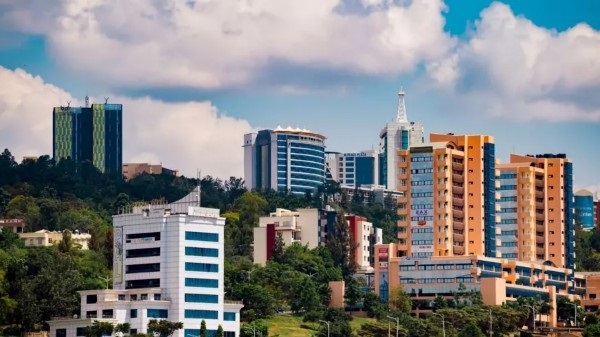Regional
Rwanda: Transforming Kigali into a smart city to create a blueprint for urban innovation

Over two decades ago, Rwanda’s capital Kigali was no place to
encourage foreigners to visit.
But things have changed since the Rwandan government has
pledged to transform the capital into a smart city, unleashing the potential of
its citizenry and transforming its public services and businesses through
innovation.
With a yearly urban growth rate of over 3.5 per cent, Kigali’s
urban population is expected to double in less than 20 years. This calls for
new ways of development and solutions, to a smart city guaranteeing a better
life for citizens.
A smart city creates an urban environment that uses innovation
and technological potential to transform and improve people’s lives while also
generating overall economic growth.
In a September 2022 Op-Ed, "Connectivity Critical to
Transforming Kigali into a Smart City," Alex Kabeja, CEO of Liquid
Intelligent Technologies Rwanda, imagined a city that can operate efficiently
to improve service delivery for millions of lives.
"The kind of city where public transport is fully
functional, where traffic lights work and traffic congestion is a thing of the
past, where poverty is alleviated and jobs are created, where education and
health facilities are performing optimally, where safety and security is no
longer a concern, where emergency response is swift and disaster relief aid is
accelerated. This is a smart city we all dream of," he noted.
Back in the 80s and 90s, he noted, we never thought this
was possible in Africa, in our lifetime.
"But we were mistaken. The future is here, and smart
cities are already taking shape across the globe. Africa is no different, and
developing economies are finally being recognised on the global map. This is
all thanks to the benefits of connectivity and intelligent technology.
Improving and optimising functions of cities remains a top agenda item in most
countries and Kigali, the capital city of Rwanda, is well on its way to reaching
this dream. But the rapid urbanisation taking place there means that this
knowledge-based economy is now more crucial than ever before."
Meeting urbanisation needs and fast-tracking a smart city
is therefore pivotal for Kigali, Kabeja wrote.
"But creating this data-driven environment requires
connectivity, infrastructure, access to digital technologies and investment. In
line with this, the Rwandan government has invested and continues to push the
ICT agenda and Liquid Intelligent Technologies - a business of Cassava
Technologies – has already begun to carry out the leg work in Kigali."
The thought of a smart city in Kigali aligns to the UN’s
Sustainable Development Goals (SDG) 2030 where connectivity has now been
prioritised following Covid-19.
At the heart of Smart City Kigali is the drive to enable
businesses, public sector organisations, educational institutions, and
individuals to leverage technology to create new solutions to urban
problems.
Among others, the successful development of Kigali as a smart
city is reliant on connectivity infrastructure, private-sector investment and
expertise.
Irembo, e-Government Portal
Among the smart city solutions, Rwanda developed an online
e-Government portal known as Irembo
that helps people to access over 100 government services online including; but
not limited to immigration, health, environment, education, family, agriculture
and animal resources, business and investment, justice, as well as sports and
entertainment.
This reduced long queues, transport costs, time-consuming
paperwork, and time spent to get those services in various offices.
Smart public transport
The Tap & Go e-payment system on public transport buses
in Kigali, a cashless mode where passengers pay their bus fares using
pre-loaded cards, was introduced in 2015. The initiative extended to
motorcycles, with smart meters and cashless payments.
These initiatives significantly reduced the number of fraud
cases, and cut transaction timing for passengers, while enabling public
transport firms to improve operational efficiency.
Drone Delivery
Rwanda, in partnership with US-based startup Zipline,
started drone delivery services for
medical supplies across the country in 2016. The drones deliver blood,
medicines, and vaccines to hospitals and health centers.
This reduced national blood wastage by 67 percent and
in-hospital maternal mortality by 88 percent.
These delivery services will expand into e-commerce, food, and
veterinary sectors.
E-policing services
Kigali introduced a range of e-policing services including
CCTV cameras connected to a central command center in Kigali, an e-policing
strategy that includes online registration of driving licenses, the use of
social media for first responders, and speed governors in cars to minimize road
accidents.
There are also speed cameras that detect over speeding
vehicles and Red Light Cameras (RLC) installed on the roads that detect
vehicles violating traffic lights and signs.
E-Health Services
In 2016, Rwanda and Babylon Health launched a digital health
care system where patients can access doctors through their mobile devices.
Patients register through local mobile networks, with a
provided number, and linked to a healthcare professional. They can also
interface with health workers via audio and video.
4G LTE Rollout
Launched in 2014, the fast wireless communication 4G Network
now covers more than 98 per cent of the Rwandan population.
Rwanda is making waves in the technology world, and plans
to roll out 5G networks. This move is expected to impact the Internet of Things
(IoT) and bring about a new era of connectivity and innovation.
Smart internet connectivity is essential to ease the
working and living environment, since 63 per cent of the country’s population
is online.
Other established smart solutions include; smart street
lighting, e-commerce platforms, charging stations for electric vehicles, electronic
land title system, rainwater management, and online payments.






